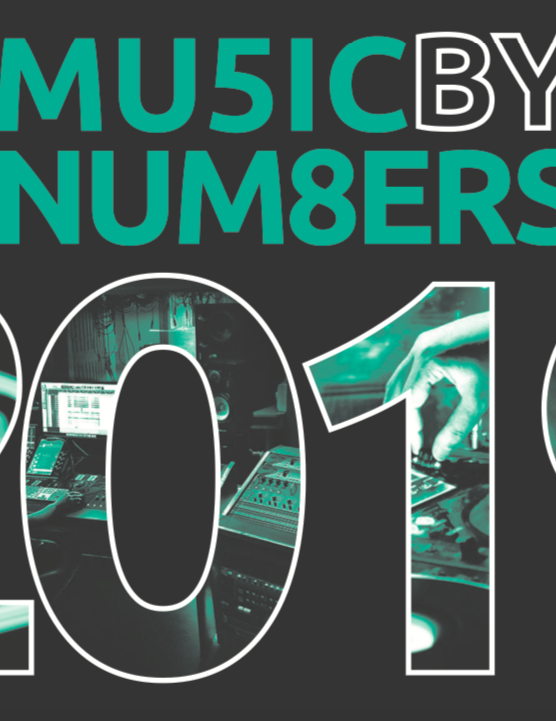Are Recording Studios In Trouble?
Established when George Martin quit EMI in 1969 to set up his own base, AIR Studios became one of the most successful operations in the world. Creators from across the globe come to the studios at Lyndhurst Hall, opened by Sir George in 1992, to record at Britain’s premier scoring facility.
The complex at Hampstead continues to lure the major classical labels, high-profile artists as well as some of the biggest movie scores. It also incorporates mastering facilities in its Grade II listed HQ, a former church and missionary school.
Its big clients include the Hollywood film majors, attracted by the huge reservoir of talent offered by the UK’s musicians and the space available to record large orchestras. The strength of the film market has helped compensate for the drop-off in the number of bands coming through the doors, as more creators now record their work on computers due to advances in recording software.
The sector has seen studio closures in recent years, such as the recent announcement from Angel Recording Studios, and, like other studios, AIR faces challenges such as the requirement to be ultra-flexible to meet the needs of late booking clients and rising bills for utilities and other costs.
The studios would like to see the Government act to mitigate the impact of rising business rates - a rocketing cost that has hit many studios and music venues. It is also keen to see film tax credits maintained. The credits play an important role in encouraging US film studios to come to the UK. Tax credits for the music industry could be used in a similar way to help encourage musicians to come to the UK to record.
Another recent challenge was the threat of development works with potential for noise pollution that would destroy the fundamental viability of the business. AIR would like to see consideration for construction noise impacting audio businesses taken into account during planning applications. With its strong base in film and TV and new clients from the streaming world, AIR is facing the future with confidence.
Next Steps
Music By Numbers outlines key steps that Government and policy-makers should take in order to maintain growth and success across the UK music industry:
Business Rates
Grassroots venues offer a great opportunity for emerging artists to develop their skills in front
of audiences, however 35% of venues have closed in the past decade. Rising business rates continue to be the single most common reason behind venue closures.
The 2017 business rate revaluation amounted to a 31% increase in business rates payable by grassroots venues. Grassroots music venues are not eligible for business rate relief under the Government’s retail discount scheme. The guidance to local authorities says that music venues “are not similar in nature” to pubs and clubs.
UK Music has campaigned to establish a change to the guidance to ensure grassroots music venues are eligible for business rate relief in the same way as pubs and clubs. This modest change would cost just over £1 million over a two-year period, benefiting 124 venues in the process. The Government must act to help safeguard our venues.
Copyright Protection
The successful #LoveMusic campaign, led by UK Music, helped to pass the Copyright Directive in March 2019. The Directive will improve the way creators and those that invest in them are financially rewarded.
Without the directive, creators will continue to get a raw deal. Google-owned YouTube currently pays creators significantly less than the real value to them. The Directive must be properly transposed into UK legislation - whatever the outcome of Brexit. Failure to deliver these vital changes would be disastrous and leave the UK out of step with its largest music market.
The Government must set out a road map outlining how it intends to take the Directive forward. Copyright infringement remains a major problem for the music industry. According to the Intellectual Property Office 2018 Copyright Infringement Tracker, around 31% of online music content is accessed illegally.
At present, the scope of the Government’s Online Harms White Paper does not cover economic harm. It is vital that these reforms are broadened to force platforms to protect the creative work and intellectual property of music creators. The Government should also ensure, through the IP Roundtables process, that online platforms adopt responsible new proactive measures to prevent illegal content appearing on their services.
Shared Parental Leave
UK Music is calling on the Government to update shared parental leave and pay rules to include self-employed parents as part of the #SelfieLeavecampaign.
At present, there is no shared parental leave and pay system in place for self-employed parents. The current system of Maternity Allowance for the self-employed places the entire burden of childcare onto the mother and offers no financial support for self-employed fathers or same- sex partners wanting to share some or all of the childcare. This inflexible system is holding back equality in the music industry, where 72% of all workers are self-employed.
International Trade Support
Worldwide selling tours from UK artists like Ed Sheeran and Adele, as well as the critical acclaim of music genres like grime, show how successful the UK music industry continues to be overseas.
This success relies on UK artists being able to grow their audiences abroad. The Music Export Growth Scheme (MEGS) - which was established in 2013 and is administered by the BPI - allows this to happen. PRS Foundation’s International Showcase Fund (ISF), is another example. Both schemes are supported by the Department of International Trade. Government funding for these schemes should be renewed and extended further.
Talent Pipeline
Over the past five years, the number of people studying A-level music has declined by an alarming 30%, while the total number of people studying A-levels dropped by only 4% over the same period.
A total of 17% of music creators were educated at independent schools, compared to 7% across the population as a whole. Around 50% of children at independent schools receive sustained music tuition, but the figure is only 15% for state schools.
If we want to produce the stars of the future, we’ve got to invest in talent for the future. We need to make sure everyone has access to a music education, irrespective of background.
As part of its work to refresh the National Plan for Music Education the Government should secure universal access to music within state education. Sustained funding for music education is also required to halt the decline in music in education, along with empowering local solutions for music education through City Region Music Boards. Schemes like the UK Music Rehearsal Spaces network, which supports practice rooms and studios in low-income areas, should also be expanded and enhanced.
From 2009-2011, UK Music worked with Sound Connections and the DCMS to open 14 rehearsal spaces across England. The original scheme reached over 33,000 young people (of which 75% were aged 11-18) and created 65 jobs. Its success led to an expansion to 23 spaces which are part of the scheme today. UK Music are keen to see a greater provision of these spaces so more young people can access and benefit from rehearsal facilities.
The system that supports the music economy relies on a constantly refreshed pool of young and diverse creative talent. UK Music is committed to helping companies diversify and adopt fair and inclusive employment practices. We continue to work with the Government and industry to achieve this and make workplaces as accessible as possible.
Touring After Brexit
Brexit could have an impact on the UK’s touring artists’ ability to move freely across Europe without extra costs and bureaucracy.
The Government must back plans for a single EU-wide live music ‘touring passport’ to avoid new restrictions. This new passport would mitigate against any negative impacts that come with losing freedom of movement.
UK Music is concerned that losing freedom of movement of goods will see the introduction of an expensive and time-consuming carnet system. The Government must ensure Brexit does not damage our world-leading industry.
Fiscal Incentives
Fiscal incentives have been used to great effect to support creative sectors. For example, film, big budget TV programmes and interactive entertainment all benefit from tax credits for new productions. However, currently, there is no equivalent scheme for the commercial music industry.
The music industry, like many other sectors within the creative industries, comprises a disproportionately high number of SMEs, micro businesses and sole traders. Many of these businesses suffer from a lack of inward investment.
There is an urgent need for a tool to educate investors and pump prime inflows of capital, as well as incentivise companies that are developing the next generation of world-class UK talent to invest more in new recordings and new artist signings and to encourage global talent to use the UK’s world class studios and recording facilities.
The risks to the UK music market of not acting now include the economic risk of the UK losing its place as one of the world’s only net exporters of music, as well as vastly reducing the diversity of talent that benefits from investment. The DCMS should commit to developing policy work in partnership with UK Music with a view to introducing a tax credit system to help encourage greater investment into UK music production.
Read the full report here.



